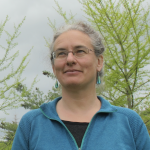Join us on Wednesday, Sept.7 from 8:30 am – 11:00 am (PDT) | 4:30 pm – 7:30 pm (BST)
This event will take place via Zoom, and with a limited number of in-person seats available.
What does it mean to re-imagine the food system?
The UBCO-Exeter symposium is an opportunity to share experiences and knowledges on the issues of regional food networks in British Columbia, Canada and Devon, UK. We’ll explore our similar and divergent experiences, existing challenges, actions for change and the role of networks in supporting pathways to co-create sustainable food systems.
Invited speakers from Land to Table, BC, Organic BC, along with Food Exeter and The Devon Food Partnership, UK, will highlight the tensions and opportunities for regional food systems in the face of climate change, COVID recovery, cost of living crises, legacies of land based injustices and more.
Rebecca Sandover (University of Exeter) and Mary Stockdale (University of British Columbia, Okanagan) will then lead a roundtable discussion between the speakers and audience members.
Agenda:
8:30 am (PDT) | 4:30 pm (BST): Introduction and welcome
8:35 am (PDT) | 4:35 pm (BST): Presentation by Dr. Sandover
8:50 am (PDT) | 4:50 pm (BST): Presentation by Andy Johnson
9:05 am (PDT) | 5:05 pm (BST): Presentation by Eva-Lena Lang,
9:15 am (PDT) | 5:15 pm (BST): Presentation by Liz Blakeway
9:25 am (PDT) | 5:25 pm (BST): Presentation by Dr. Mary Stockdale
9:35 am (PDT) | 5:35 pm (BST): Bio break
9:45 am (PDT) | 5:45 pm (BST): Panel discussion and question period
Symposium Speakers:
 |
Rebecca Sandover
Lecturer, Human Geography, University of Exeter
Dr. Rebecca Sandover is Lecturer in Human Geography at the University of Exeter. She is a social scientist with research interests in Sustainable Food Networks, food policy partnerships and Public Participation in Climate Change policy making. Using a knowledge co-production approach, she has in recent years been investigating action toward the formation of sustainable food networks in the South West UK. Her research is particularly focused on building local food partnerships with local authorities, boosting access to sustainable local food, addressing food insecurity and issues of health and wellbeing. Recently, she has also been researching Public Participation in Climate Change policy making, exploring the setting up and running of the Devon Climate Emergency’s Climate Assembly. |
 |
Andy Johnson
Consultant, Exeter Organic Local Food Hub
Andy Johnson is a consultant and advisor who works with organic growers, farmers, buyers, manufacturers, policy makers & campaigners in the aim of changing the food system. He worked as Manager for Riverford Farm Veg box scheme before setting up his own organic eggs production business. He now applies his skills to help the organic market to grow both as a consultant and as an activist for the Exeter Organic Local Food Hub.’ |
 |
Eva-Lena Lang
Organic BC, Executive Director
Eva-Lena Lang is the Executive Director of Organic BC. She grew up on an organic ranch and gained farming experience on agricultural operations in BC and Europe. To increase her capacity to support farmers and grow the regional food system she co-founded the North Okanagan Land to Table Network (L2T). This work led her to pursue a masters at the Institute for Community Engaged Research at UBCO, studying network development in food systems; applying her research to L2T. |
 |
Liz Blakeway
Land to Table, Network Director
Liz is the Network Director for Land to Table (L2T), a regional food system network based in the North Okanagan. She has grown with the organization over the past 4 years, working to create a thriving, just, resilient and re-localized food system that centers support for small scale farmers. Liz is passionate about catalyzing connections and collaboration, mobilizing network participants’ ideas, knowledge and energy to build systems that support community. She lives with her family and a growing number of animal on a small acreage/would-be-farm in the Shuswap. Liz loves to cook for her people and understands that having quality, clean, fresh local food is an absolute privilege. |
 |
Mary Stockdale
Adjunct Professor, Community, Culture & Global Studies (Geography), UBC Okanagan
Dr. Mary Stockdale is an adjunct professor and instructor for Community, Culture and Global Studies at UBCO, where she teaches and researches community resilience, sustainability and natural resource management. She has over 20 years of experience working in Southeast Asia (mainly Indonesia and the Philippines) on community-based management of non-timber forest products (NTFPs). In the Okanagan, she acts as a bridge between university and community for partnerships on topics such as regional food systems, sustainable transportation, transition town initiatives and climate change awareness. |

 Thursday, Nov.17
Thursday, Nov.17




